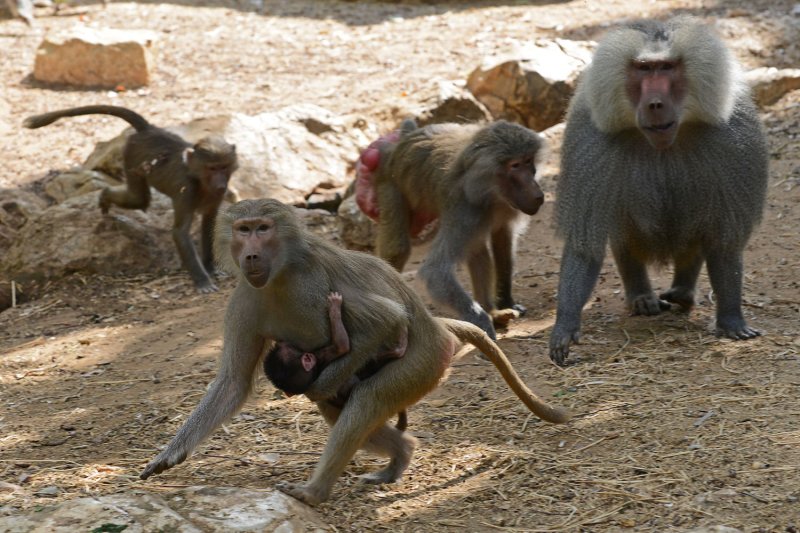NAIROBI, Kenya, Sept. 11 (UPI) -- Research has shown strong social relationships -- both with friends and significant others -- to be good for human health. Now a new study shows the same holds true for baboons.
Previous studies have shown same-sex social interaction to have positive impacts on the longevity of rats and dolphins, but the latest research out of Duke University showed the health and life expectancy of female baboons was especially improved by increased interaction, or "social grooming," with male companions.















